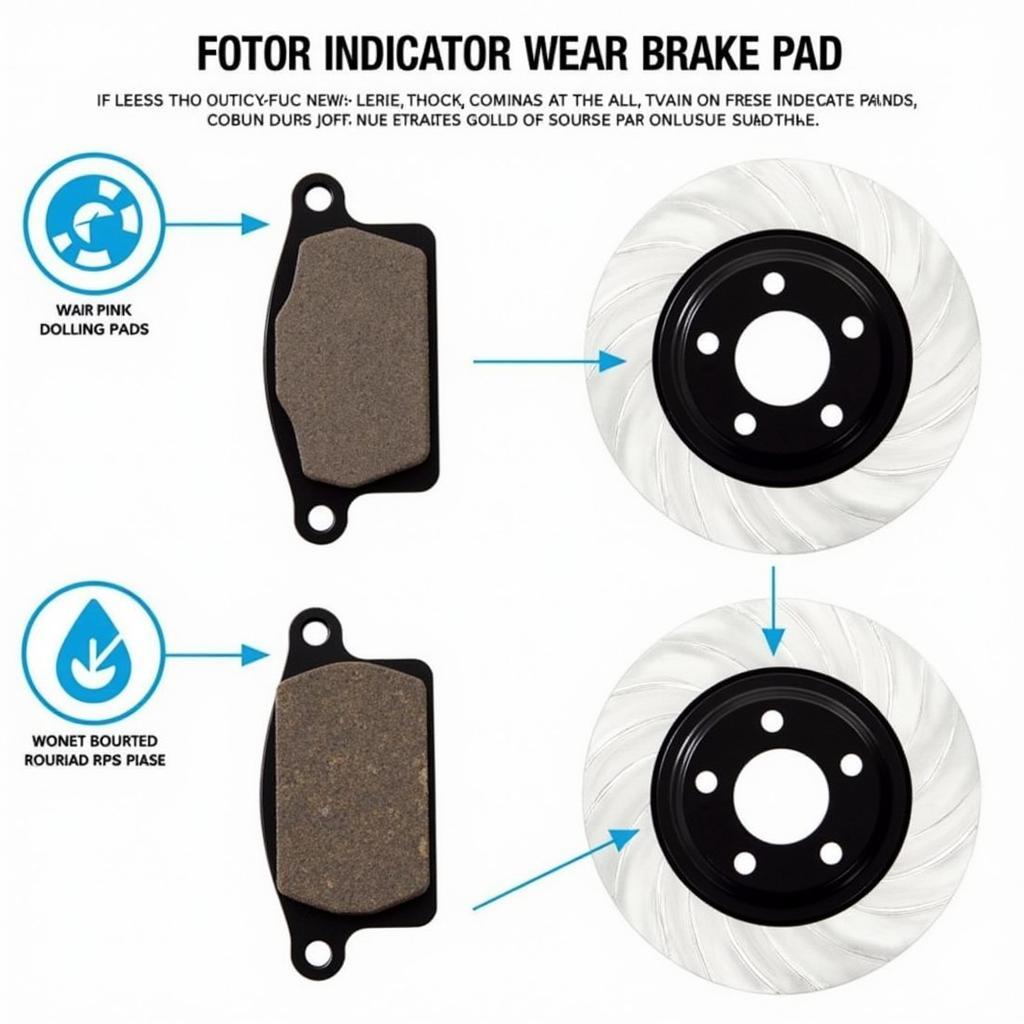The dreaded illumination of your Hyundai’s brake warning light on the dashboard can send a shiver down any driver’s spine. While a cause for concern, it’s important to understand that this warning light doesn’t always signify a catastrophic brake failure. It serves as a critical indicator that something within your braking system requires attention. This comprehensive guide will explore the common reasons behind a Hyundai brake warning light, provide troubleshooting tips, and highlight potential solutions.
Deciphering Your Hyundai’s Brake Warning Light
The brake warning light on your Hyundai dashboard can present itself in a couple of ways:
- Solid Red Light: This usually indicates a serious issue within your braking system, such as low brake fluid or a malfunctioning component.
- Flashing Red Light: A flashing light often points to a problem with the ABS (Anti-lock Braking System), a crucial safety feature.
Common Causes of a Hyundai Brake Warning Light
1. Low Brake Fluid Level
The most common culprit behind a lit brake warning light is a low brake fluid level. Brake fluid is the lifeblood of your car’s braking system, transmitting the force applied to the brake pedal to the wheels, ultimately stopping the vehicle.
Troubleshooting:
- Check the brake fluid reservoir: Located under the hood, the reservoir has a “Min” and “Max” marking. If the fluid level is below the minimum, it’s time to add more.
- Inspect for leaks: If you notice a drop in brake fluid level, there’s likely a leak. Thoroughly check the brake lines, hoses, and calipers for any signs of fluid leakage.
Solution:
- Add brake fluid: Use the recommended brake fluid type specified in your Hyundai’s owner’s manual.
- Address leaks: Repairing brake fluid leaks is not a DIY task. Seek professional help from a certified mechanic to ensure a safe and effective repair.
2. Worn Brake Pads
Brake pads are designed to wear down over time. When they reach a certain level of wear, the brake pad wear sensor will trigger the warning light.
Troubleshooting:
- Listen for noises: Screeching or grinding sounds when applying the brakes are telltale signs of worn brake pads.
- Visually inspect the brake pads: If you’re comfortable with basic car maintenance, you can visually check the thickness of your brake pads through the wheel spokes.
Solution:
- Replace brake pads: Timely brake pad replacement is essential for optimal braking performance and safety. Consult your Hyundai’s owner’s manual for recommended pad replacement intervals.
3. Faulty Brake Light Switch
The brake light switch, located behind the brake pedal, is responsible for activating the brake lights when the pedal is pressed. A faulty switch can lead to the brake warning light illuminating.
Troubleshooting:
- Check brake light functionality: If your brake lights aren’t working, a faulty brake light switch could be the culprit.
Solution:
- Replace the brake light switch: While a relatively straightforward repair, consulting a mechanic for diagnosis and replacement is recommended.
4. ABS Issues
If the brake warning light is flashing, it usually indicates a problem with your Hyundai’s ABS. The ABS prevents wheel lockup during hard braking, improving vehicle control and stability.
Troubleshooting:
- Check ABS warning light: A dedicated ABS warning light might illuminate on the dashboard alongside the brake warning light.
- Listen for unusual noises: Grinding or clicking sounds coming from the wheels during braking can signal an ABS issue.
Solution:
- Diagnose with a scanner: Diagnosing ABS problems requires a specialized scanner to read trouble codes stored within the system.
- Repair or replace faulty components: Depending on the diagnosed issue, repairs might involve replacing sensors, the ABS module, or other related components.
5. Other Potential Causes
- Faulty parking brake switch: A malfunctioning parking brake switch can cause the brake warning light to stay on even when the parking brake is disengaged.
- Master cylinder issues: The master cylinder is a crucial component that converts hydraulic pressure into braking force. Issues with the master cylinder require immediate professional attention.
- Electrical problems: Wiring issues, a blown fuse, or a malfunctioning sensor can also trigger the brake warning light.
Addressing a Hyundai Brake Warning Light: Seeking Professional Help
“Ignoring a brake warning light is like playing a dangerous game with your safety,” says Michael Lee, a certified automotive technician with over 15 years of experience specializing in Hyundai vehicles. “These lights are designed to alert you to potential problems early on. Addressing them promptly can save you from costly repairs and, most importantly, keep you safe on the road.”
Attempting to diagnose and repair complex brake system issues yourself can be risky. When in doubt, it’s always best to consult a qualified mechanic experienced in Hyundai vehicles. They have the knowledge, tools, and expertise to pinpoint the exact cause of the problem and carry out the necessary repairs safely and effectively.
Conclusion
A glowing brake warning light on your Hyundai dashboard should never be ignored. By understanding the common causes and seeking professional help when needed, you can ensure the optimal performance and safety of your vehicle’s braking system. Remember, when it comes to brakes, prevention is always better than cure.

